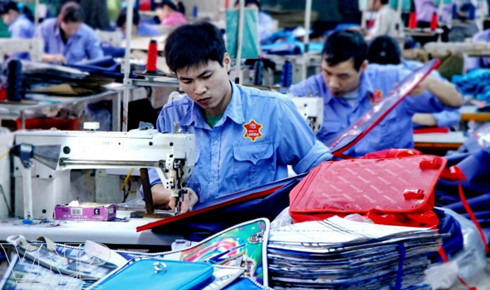Creating a workforce for the new industrial age of Vietnam
 |
However, these same experts caution that without bold national reform in Vietnam— job applicants will lack the skills to fill the positions.
From the retail sector to manufacturing, telecommunications and transport, new business models and most importantly – high paying challenging new job opportunities – are rapidly emerging throughout the Southeast Asian country.
These jobs, especially those in business and engineering, say the economists, lack one important ingredient— applicants from the labour pool who have the interpersonal skills and technical talent needed to fill them.
Business leaders in Vietnam reported acute talent shortages in 2016, ranking the country in the bottom half of the 124 countries surveyed by the World Economic Forum as part of the process of developing its human capital index, which measures how effectively countries develop and manage their workforces.
For comparison purposes, Malaysia, in fourth place, ranked highest among the ASEAN member countries.
By 2020, talent shortages in Vietnam and ASEAN overall are expected to get worse, unless effectual remedial action is taken.
All encompassing, Vietnam businesses have the potential for net job growth over the next five years, say the experts, with some job classifications becoming redundant through automation, but offset with a higher number of new roles emerging.
However, the lack of qualified talent in Vietnam is likely to diminish job-growth opportunities. Even roles that remain stable will face – skills instability – as existing jobs begin to require, at least in part, a new higher level of aptitude and ability for working with advanced technology.
Just as significant, nearly all jobs over the next five years will also require much stronger social and collaboration skills, unique human traits that go beyond mastering machines, say the experts.
They note that this could find the Vietnam public and private sectors facing a unique dilemma simultaneously facing both a growth in employment opportunities and a shortage of potential employees possessing the prerequisite skills to occupy both the new and existing roles.
The economist say that the solutions to this challenge will require bold leadership and a future-oriented vision, adding that it is critical for governments and businesses alike to act cohesively to co-create a new education and employment environment.
Businesses in Vietnam can no longer sit idly by doing nothing for themselves, acting as mere passive consumers of ready-made human capital. Instead, they must take the helm and put the development of talent and human capital at the centre of their business strategy.
As well, the young generation must get on a level with their peers around the globe and take greater responsibility for the development of their own skillsets, most importantly – foreign language and collaborative skills – which may mean ridding themselves of their addiction to mobile phones and other selfie obsessions.
The latest official unemployment statistics showed that nearly 1.2 million working-aged people were unemployed in the third quarter of 2016, an increase of 29,000 compared against the same quarter in 2015.
Among those unemployed, 456,000 possessed advanced technical skills, 202,000 held university degrees, 112,000 had received vocational training, while another 73,000 had graduated from vocational colleges.

